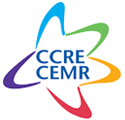
The Netherlands Unitary state
The Netherlands is a unitary state in Western Europe. It has a population of 17,081,500 (2017). It has a two-tier system of local government comprising 12 provinces (provincies) and 390 municipalities (gemeenten) (2016). The number of municipalities is changing all the time, however, because of a decades-long tradition of mergers and groupings.
There has been a general trend towards abolishing municipalities with fewer than 5,000 inhabitants, along with specific plans to reduce or even drastically cut the number of municipalities.
The Netherlands also was water boards (waterschappen) – public entities with the same status as the provinces and municipalities, but with specific responsibility for water-related affairs.
There has been a general trend towards abolishing municipalities with fewer than 5,000 inhabitants, along with specific plans to reduce or even drastically cut the number of municipalities.
The Netherlands also was water boards (waterschappen) – public entities with the same status as the provinces and municipalities, but with specific responsibility for water-related affairs.
Markers
 |
STATE STRUCTURE: Unitary |
|
CURRENCY: Euro (EUR) |
|
|
VOTE Non-compulsory |
|
26 |
SEATS AT THE EUROPEAN PARLIAMENT |
Ratification of the European Charter
|
|
402 |
LOCAL GOVERNMENTS (IN 2016) |
 |
CAPITAL CITY:
Amsterdam |
POPULATION:
17 081 500 |
|
GEOGRAPHICAL SIZE:
41 540 km2 |
|
MEMBER STATE
EU since 1958Council of Europe since 1949 |
|
12 |
SEATS AT THE COMMITTEE OF REGIONS |
2 |
LEVELS OF SUB-NATIONAL GOVERNMENTS |
Evolution
NUMBER OF LOCAL AUTHORITIES*
* Dates of CEMR publications





